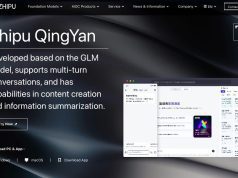United States Department of Treasury Fines Swiss Bank EFG International $3.7 Million to Settle $30.4 Million of Violations in 873 Securities-Related Transactions, Opened Investment Account in EFG Singapore & Transacted $468,000 for a China Citizen Blocked under Economic Sanction Kingpin Act, Executed $29.9 Million Securities-Related Transactions for Clients in Cuba, $1,200 Dividend Payments for an Individual Blocked under Russia Sanctions Program
21st March 2024 | Hong Kong
The United States Department of Treasury (Office of Foreign Assets Control, OFAC) has fined Swiss Bank EFG International $3.7 million to settle $30.4 million of violations in 873 securities-related transactions, with EFG opening an investment account in ESG Singapore & transacted $468,000 for a China citizen blocked under economic sanction Kingpin Act, executing $29.9 million of securities-related transactions for clients in Cuba, and $1,200 dividend payments for an individual blocked under the Russia Sanctions Program. (The Cuban Assets Control Regulations, 31 C.F.R. § 515.201 prohibits U.S. persons from transacting with Cuba and Cuban Nationals.). OFAC announcement (14/3/24): “EFG International AG, a global private banking group based in Switzerland with approximately 40 global subsidiaries (collectively “EFG”), has agreed to pay $3,740,442 to settle its potential civil liability for apparent violations of multiple sanctions programs administered by OFAC. Between 2014 and 2018, EFG caused U.S. securities firms to process 727 securities-related transactions totaling $29,939,701 on behalf of customers in Cuba, 141 securities-related transactions totaling $468,615 for an individual blocked under the Kingpin Act, and, in 2023, five dividend payments, with a combined value of $1,200, for U.S.-custodied securities of a person blocked under Executive Order 14024 of OFAC’s Russia sanctions program. The settlement amount reflects OFAC’s determination that EFG’s apparent violations were voluntarily self-disclosed and not egregious, and also reflects EFG’s significant remedial measures.” In 2023, the Hong Kong Monetary Authority (HKMA) fined EFG Bank $2 million (HKD 16 million) for anti-money laundering & due diligence failure, failing to verify identities of 147 clients & beneficial owners, failing to verify 33 beneficial owners classified as higher risk & failing to review unusual transactions in the accounts. More info below:
” United States Department of Treasury Fines Swiss Bank EFG International $3.7 Million to Settle $30.4 Million of Violations in 873 Securities-Related Transactions, Opened Investment Account in EFG Singapore & Transacted $468,000 for a China Citizen Blocked under Economic Sanction Kingpin Act, Executed $29.9 Million Securities-Related Transactions for Clients in Cuba, $1,200 Dividend Payments for an Individual Blocked under Russia Sanctions Program “
United States Department of Treasury Fines Swiss Bank EFG International $3.7 Million to Settle $30.4 Million of Violations in 873 Securities-Related Transactions, Opened Investment Account in EFG Singapore & Transacted $468,000 for a China Citizen Blocked under Economic Sanction Kingpin Act, Executed $29.9 Million Securities-Related Transactions for Clients in Cuba, $1,200 Dividend Payments for an Individual Blocked under Russia Sanctions Program

EFG International AG Settles with OFAC for $3,740,442 for Apparent Violations of Multiple Sanctions Programs
14th March 2024 – EFG International AG, a global private banking group based in Switzerland with approximately 40 global subsidiaries (collectively “EFG”), has agreed to pay $3,740,442 to settle its potential civil liability for apparent violations of multiple sanctions programs administered by OFAC. Between 2014 and 2018, EFG caused U.S. securities firms to process 727 securities-related transactions totaling $29,939,701 on behalf of customers in Cuba, 141 securities-related transactions totaling $468,615 for an individual blocked under the Kingpin Act, and, in 2023, five dividend payments, with a combined value of $1,200, for U.S.-custodied securities of a person blocked under Executive Order 14024 of OFAC’s Russia sanctions program. The settlement amount reflects OFAC’s determination that EFG’s apparent violations were voluntarily self-disclosed and not egregious, and also reflects EFG’s significant remedial measures.
Description of the Apparent Violations
EFG’s subsidiaries and affiliates in various countries provide a range of financial services, including banking, investment, asset management, and securities brokering, to institutional customers and individuals worldwide. As further described below, EFG subsidiaries in several countries purchased and sold securities on behalf of foreign clients. These transactions were conducted through and held in omnibus accounts with U.S. custodians and other U.S. market participants, including an EFG U.S. subsidiary. Because trades and other corporate actions completed through these omnibus accounts were generally made in the name of EFG, and not its underlying clients, these U.S. market participants were unaware that they were ultimately processing securities transactions on behalf of persons sanctioned by OFAC.
Cuba Transactions
Between January 2014 and July 2018, EFG subsidiaries located in the Bahamas, Cayman Islands, Luxembourg, Monaco, and Switzerland processed 727 securities-related transactions and funds transfers totaling $29,939,701 through omnibus accounts at U.S. custodians or otherwise involving U.S. market participants, including EFG Miami, on behalf of clients who resided in Cuba or whose beneficial owners were Cuban nationals.1 EFG’s clients included a Panamanian company beneficially owned by a person located in Cuba, two private investment firms domiciled in the British Virgin Islands and Panama whose ultimate beneficial owner was another Cuban national and resident, and individuals who EFG had reason to know resided in Cuba based on residency cards they provided to their respective EFG subsidiaries. For 404 of these transactions executed on behalf of a family that included Cuban residents, EFG involved EFG Miami in a brokerage capacity. The securities transactions involved the purchase, sale, or redemption of securities positions that EFG had acquired for the clients, as well as corporate actions such as interest payments or dividend distributions.
Kingpin Act-Designated Individual
In 2009, EFG’s Singapore branch (“EFG Singapore”) opened an investment account for a Chinese national that OFAC later designated in 2014 as a Specially Designated Narcotics Trafficking Kingpin (“SDNTK”).2 Upon the designation, as per its policy, EFG Singapore imposed an internal restriction on the account to prevent the processing of any payments to or from the client’s account and restricted trading in the account. However, for more than four years, EFG Singapore did not notify its U.S. custodian or other U.S. securities firms transacting with the omnibus account that held the client’s sub-account. This omission caused the U.S. firms to process 141 securities transactions—nearly all of which were corporate actions such as interest payments and dividend distributions associated with the designated client’s securities in the account—totaling $468,615. Upon discovering this failure in 2018, EFG Singapore implemented additional controls and informed the involved U.S. securities firms of the underlying SDNTK interest.
Designated Russian Individual
In 2023, OFAC designated a client of EFG’s Swiss subsidiary pursuant to Executive Order 14024, “Blocking Property with Respect to Specified Harmful Foreign Activities of the Government of the Russian Federation” of April 15, 2021. Following the designation, EFG imposed an internal restriction on the client’s account and notified U.S. custodians about securities positions that they held on behalf of the recently OFAC-designated client. Due to an error, however, EFG’s notification to the custodians overlooked three securities positions that the client, prior to his designation, pledged to EFG Switzerland under a securities lending agreement and that were under EFG’s name rather than the client’s. EFG discovered that this lapse caused at least five dividend transactions, worth approximately $1,200, to process through U.S. securities firms.
As a result of the conduct described above, between approximately January 2014 and September 2023, EFG processed 873 securities-related transactions—totaling $30,409,488—through U.S. custodians or involving U.S. person counterparties, in apparent violation of § 515.201 of the Cuban Assets Control Regulations, 31 C.F.R. part 515 (“CACR”); § 598.202 of the Foreign Narcotics Kingpin Sanctions Regulations, 31 C.F.R. part 598 (“FNKSR”); or § 587.201 of the Russian Harmful Foreign Activities Sanctions Regulations, 31 C.F.R. part 587 (“RuHSR”) (the “Apparent Violations”).
Penalty Calculations and General Factors Analysis
The statutory maximum civil monetary penalty applicable in this matter is $276,441,312.3
OFAC determined that EFG voluntarily self-disclosed the Apparent Violations and that the Apparent Violations constitute a non-egregious case. Accordingly, under OFAC’s Economic Sanctions Enforcement Guidelines (“Enforcement Guidelines”), 31 C.F.R. part 501, app. A, as of 2023, the base civil monetary penalty applicable in this matter equals the sum of one-half of the transaction value for each apparent violation, which is $10,686,977.
The settlement amount of $3,740,442, of which $1,000,000 will be suspended pending satisfactory completion of certain compliance commitments, reflects OFAC’s consideration of the General Factors under the Enforcement Guidelines.
OFAC determined the following to be aggravating factors:
- (1) OFAC determined that EFG failed to exercise due caution or care by failing to properly screen for and timely notify U.S. custodians and other U.S. parties about positions of blocked persons held in EFG omnibus accounts in the United States.
- (2) EFG at all times knew or had reason to know that it held securities on behalf of blocked persons in omnibus accounts at U.S. custodians or counterparties.
- (3) EFG processed 727 transactions totaling $29,939,701 involving multiple persons located in Cuba over the course of at least four years, thereby conferring economic benefit to a comprehensively sanctioned jurisdiction; EFG’s conduct also increased the nominal value of the blocked persons’ assets, as the transactions were not stopped in the United States and were instead processed through to the blocked customers’ accounts.
OFAC determined the following to be mitigating factors:
- (1) EFG internally restricted the accounts to certain of its blocked clients, preventing them
from realizing economic benefit from their accounts. - (2) EFG has not received a penalty notice or Finding of Violation from OFAC in the five years preceding the earliest date of the transactions giving rise to the Apparent Violations.
- (3) EFG has taken significant remedial actions in response to the Apparent Violations, including:
o Implementing internal restrictions to prevent credits/debits to sanctioned-client accounts and requiring compliance-function approval for any account activity of customers who are not blocked but present heightened sanctions risk;
In addition to imposing such internal restrictions, requiring that all its subsidiaries notify U.S. custodians and other U.S. parties in writing of securities positions that EFG holds in its omnibus accounts on behalf of clients that have been designated by OFAC or are otherwise the subject of OFAC sanctions;
o Instituting a risk-control framework to identify high-risk countries and apply enhanced due diligence to clients with exposure; and
o Conducting annual sanctions risk assessments and instituting controls responsive to OFAC’s Framework for Compliance Commitments.
(4) EFG substantially cooperated during OFAC’s investigation of the Apparent Violations by conducting an internal investigation to identify exposure to clients under OFAC sanctions, providing well-organized and timely responses to OFAC’s requests for information, and entering into tolling agreements.
Compliance Considerations
This case illustrates certain sanctions risks that financial institutions with global clientele, including foreign securities firms who hold omnibus accounts at U.S. firms, may face. As illustrated by and this case previous OFAC settlements4, foreign financial institutions that maintain omnibus accounts at U.S. custodians or otherwise engage in securities transactions with U.S. persons should ensure risk-based controls are in place to prevent U.S. firms from inadvertently providing services to sanctioned parties or jurisdictions. Such violations may arise when U.S. firms, which lack direct insight into underlying sub-accounts due to omnibus account structures, process transactions or corporate actions on behalf of sanctioned parties or for the benefit of persons in comprehensively sanctioned jurisdictions.
To mitigate this risk, foreign financial institutions with U.S. omnibus accounts can screen their customers against OFAC’s List of Specially Designated Nationals and Blocked Persons (the “SDN List”) and otherwise conduct appropriate due diligence to identify customers or counterparties with a potential sanctions nexus. Routine screening of customer information, including names and locations, as well as ongoing risk-based due diligence, is particularly important in light of frequent updates to OFAC’s sanctions programs and additions to OFAC’s SDN List.
Upon identifying a client subject to sanctions, omnibus accountholders should impose appropriate restrictions and controls, both to prevent benefits from going to sanctioned persons and to prevent affected U.S. firms, including U.S. custodians, from processing transactions for the sanctioned persons. Such steps could include ensuring prompt communication with the U.S. firms so that they can also impose controls, such as segregating and blocking affected securities or sub-accounts, as appropriate.
In addition, as OFAC has communicated in Frequently Asked Question (FAQ) 335, U.S. securities firms should also take steps to mitigate their risk of violating U.S. sanctions. Best practices include: (1) making customers and counterparties aware of the firm’s U.S. sanctions obligations; (2) conducting due diligence to identify higher-risk clients, including through the use of questionnaires and certifications; (3) imposing restrictions or heightened controls on high- risk clients; (4) gathering additional information on non-proprietary accounts; and (5) monitoring accounts and clients for suspicious activities. Additional industry-specific OFAC guidance can be found here.
OFAC Enforcement and Compliance Resources
On May 2, 2019, OFAC published A Framework for OFAC Compliance Commitments in order to provide organizations subject to U.S. jurisdiction, as well as foreign entities that conduct business in or with the United States or U.S. persons, or that use goods or services exported from the United States, with OFAC’s perspective on the essential components of a sanctions compliance program. The Framework also outlines how OFAC may incorporate these components into its evaluation of apparent violations and resolution of investigations resulting in settlements. The Framework includes an appendix that offers a brief analysis of some of the root causes of apparent violations of U.S. economic and trade sanctions programs OFAC has identified during its investigative process. Information concerning the civil penalties process can be found in the OFAC regulations governing each sanctions program; the Reporting, Procedures, and Penalties Regulations,
31 C.F.R. part 501; and the Economic Sanctions Enforcement Guidelines, 31 C.F.R. part 501, app. A. These references, as well as recent civil penalties and enforcement information, can be found on OFAC’s website at https://ofac.treasury.gov/civil-penalties-and-enforcement- information. For more information regarding OFAC regulations, please go to: https://ofac.treasury.gov/.
Sanctions Whistleblower Program
The U.S. Department of the Treasury’s Financial Crimes Enforcement Network (FinCEN) maintains a whistleblower incentive program for violations of OFAC-administered sanctions, in addition to violations of the Bank Secrecy Act. Individuals who provide information may be eligible for awards, if the information they provide leads to a successful enforcement action that results in monetary penalties exceeding $1,000,000. FinCEN is currently accepting whistleblower tips.
Notes:
- The Cuban Assets Control Regulations, 31 C.F.R. § 515.201 prohibits U.S. persons from transacting with Cuba and Cuban Nationals.
- Foreign Narcotics Kingpin Designation Act, 21 U.S.C. §§ 1901-1908; Foreign Narcotics Kingpin Sanctions Regulations, 31 C.F.R. part 598.
- As of December 2023, EFG and OFAC had agreed to the settlement terms in principle. Therefore, OFAC applied the 2023 Federal Civil Penalties Inflation Act values for the Apparent Violations.
- OFAC Settles with CA Indosuez (Switzerland) S.A. for $720,258 Related to Apparent Violations of Multiple Sanctions Programs (Sept. 26, 2022); UBS AG Settles Potential Liability for Apparent Violations of the Global Terrorism Sanctions Regulations (August 27, 2015).
Hong Kong Monetary Authority Fines EFG Bank $2 Million for Anti-Money Laundering & Due Diligence Failure, Failed to Verify Identities of 147 Clients & Beneficial Owners, Failing to Verify 33 Beneficial Owners Classified as Higher Risk & Failed to Review Unusual Transactions

18th August 2023 – The Hong Kong Monetary Authority (HKMA) has fined EFG Bank $2 million (HKD 16 million) for anti-money laundering & due diligence failure, failing to verify identities of 147 clients & beneficial owners, failing to verify 33 beneficial owners classified as higher risk & failing to review unusual transactions in the accounts. HKMA: “The disciplinary action follows an on-site examination and further investigation by the HKMA on EFGHK’s systems and controls for compliance with the AMLO. The investigation identified control deficiencies in respect of conducting customer due diligence (CDD) on customers transferred from another financial institution during the period from 21 February 2016 to 16 January 2018, as well as on-boarding CDD and on-going CDD measures on some other customers during the period from 1 April 2012 to 31 October 2018. In addition, during the period from 1 April 2012 to 31 October 2018, EFGHK failed to establish and maintain effective procedures for carrying out its duties under the AMLO in relation to CDD and on-going monitoring of business relationships with customers.” See below for HKMA statement
Carmen Chu, Executive Director (Enforcement and AML) of the HKMA: “CDD and continuous monitoring of business relationships with customers are crucial measures for Authorized Institutions (AIs) to protect accounts from being abused for financial crime and safeguard banking system integrity. AIs are key stakeholders in the anti-money laundering and counter-terrorist financing ecosystem and should uphold the international standards incorporated in the AMLO as well as the relevant guidelines and circulars issued by the HKMA in their conduct of business.”
Hong Kong Monetary Authority Fines EFG Bank $2 Million for Anti-Money Laundering & Due Diligence Failure

- The Monetary Authority takes disciplinary action against EFG Bank AG, Hong Kong Branch for contraventions of Anti-Money Laundering and Counter-Terrorist Financing Ordinance
15th August 2023 – The Hong Kong Monetary Authority (HKMA) announced today (15 August) that it had completed an investigation and disciplinary proceedings for EFG Bank AG, Hong Kong Branch (EFGHK) under the Anti-Money Laundering and Counter-Terrorist Financing Ordinance (Chapter 615 of the Laws of Hong Kong) (AMLO) (Note 1). The Monetary Authority (MA) has imposed a pecuniary penalty of HK$16,000,000 against EFGHK for contraventions of the AMLO.
The disciplinary action (Note 2) follows an on-site examination and further investigation by the HKMA on EFGHK’s systems and controls for compliance with the AMLO. The investigation identified control deficiencies in respect of conducting customer due diligence (CDD) on customers transferred from another financial institution during the period from 21 February 2016 to 16 January 2018, as well as on-boarding CDD and on-going CDD measures on some other customers during the period from 1 April 2012 to 31 October 2018. In addition, during the period from 1 April 2012 to 31 October 2018, EFGHK failed to establish and maintain effective procedures for carrying out its duties under the AMLO in relation to CDD and on-going monitoring of business relationships with customers.
In deciding the disciplinary action, the MA has taken into account all relevant circumstances and factors, including the following:
- (a) the seriousness of the investigation findings;
- (b) the need to send a clear deterrent message to EFGHK and the industry about the importance of effective controls and procedures to address the risks of money laundering and terrorist financing;
- (c) EFGHK has taken remedial and enhancement measures to address the deficiencies identified by the HKMA; and
- (d) EFGHK has no previous disciplinary record in relation to the AMLO and cooperated with the HKMA during the investigation and enforcement proceedings.
Notes:
- Prior to 1 March 2018, the short title of Chapter 615 of the Laws of Hong Kong was the Anti-Money Laundering and Counter-Terrorist Financing (Financial Institutions) Ordinance.
- The disciplinary action is taken under section 21 of the AMLO. The AMLO imposes customer due diligence and record-keeping requirements on specified financial institutions, including Authorized Institutions, and designated non-financial businesses and professions. As regards Authorized Institutions, the MA is the relevant authority under the AMLO.
Sign Up / Register
Caproasia Users
- Manage $20 million to $3 billion of assets
- Invest $3 million to $300 million
- Advise institutions, billionaires, UHNWs & HNWs
Caproasia Platforms | 11,000 Investors & Advisors
- Caproasia.com
- Caproasia Access
- Caproasia Events
- The Financial Centre | Find Services
- Membership
- Family Office Circle
- Professional Investor Circle
- Investor Relations Network
Monthly Roundtable & Networking
Family Office Programs
The 2025 Investment Day
- March - Hong Kong
- March - Singapore
- July - Hong Kong
- July - Singapore
- Sept- Hong Kong
- Sept - Singapore
- Oct- Hong Kong
- Nov - Singapore
- Visit: The Investment Day | Register: Click here
Caproasia Summits
- The Institutional Investor Summit
- The Investment / Alternatives Summit
- The Private Wealth Summit
- The Family Office Summit
- The CEO & Entrepreneur Summit
- The Capital Markets Summit
- The ESG / Sustainable Investment Summit



































